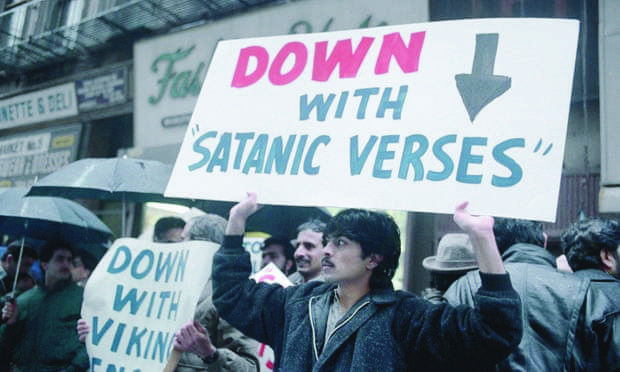The Satanic Verses
Muslim organizations across India have expressed outrage and deep concern following the reappearance of Salman Rushdie’s controversial novel The Satanic Verses on the market shelves.
The book, which has long been at the center of protests and controversy, has sparked fresh waves of anger among religious leaders and community groups, who argue that its content continues to be deeply offensive and insulting to the Prophet Muhammad and the Islamic faith.
The novel, first published in 1988, was banned in India shortly after its release due to its portrayal of religious themes that many Muslims found blasphemous.
However, with its recent availability in the market, Muslim organizations are once again voicing their strong disapproval.
Leaders from various groups have issued public statements condemning the lifting of the ban, warning of the potential for widespread hurt feelings and even violent reactions within the Muslim community.
These organizations have pointed to past incidents of protests, demonstrations, and violence that erupted following the book’s initial publication and distribution.
They argue that The Satanic Verses remains a highly inflammatory work that has the potential to ignite social unrest and deepen religious divides.
Leaders have emphasized that the novel’s content continues to fuel tensions between different religious communities in India, and its availability is seen as a provocation to Muslims who view the book as a direct affront to their beliefs.
In response to this renewed controversy, the organizations are urging the central government to immediately reinstate the ban on the book, citing the potential for violent protests and widespread unrest.
They have called on the government to take into account the religious sensitivities of the Muslim population and act in a manner that would prevent any further escalation of tensions.
The situation highlights the enduring sensitivity surrounding The Satanic Verses in India, a country with a large Muslim population, and underscores the deep-seated divisions that continue to exist over issues related to religious freedom, expression, and respect.
The ongoing debate continues to raise questions about the balance between freedom of speech and the protection of religious sentiments in a diverse society.
I am a dynamic professional, specializing in Peace and Conflict Studies, Conflict Management and Resolution, and International Relations. My expertise is particularly focused on South Asian Conflicts and the intricacies of the Indian Ocean and Asia Pacific Politics. With my skills as a Content Writer, I serve as a bridge between academia and the public, translating complex global issues into accessible narratives. My passion for fostering understanding and cooperation on the national and international stage drives me to make meaningful contributions to peace and global discourse.










